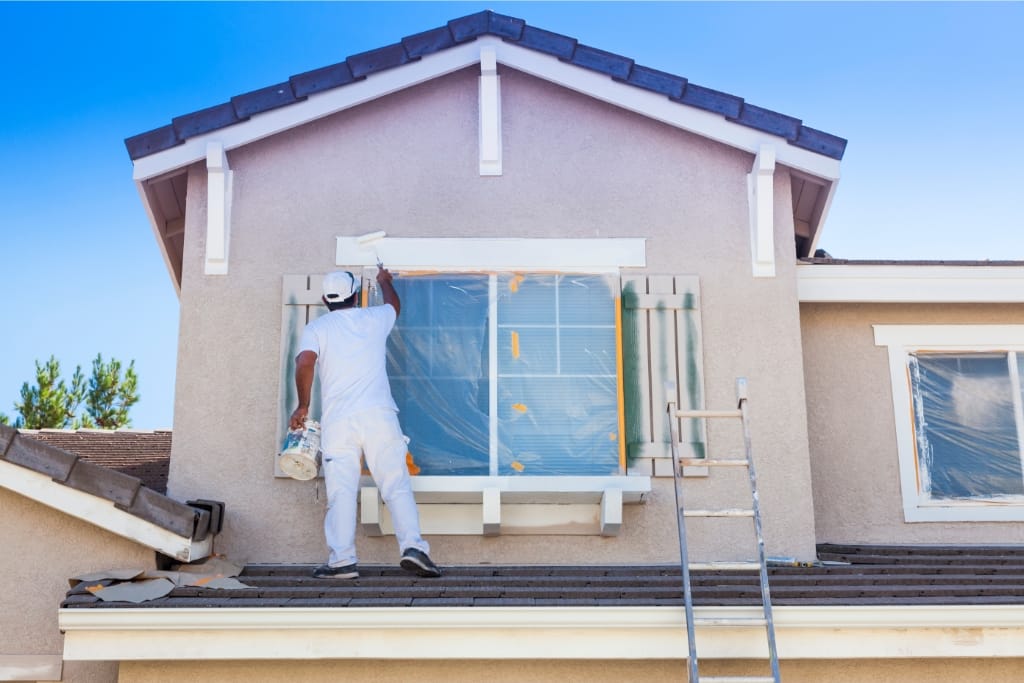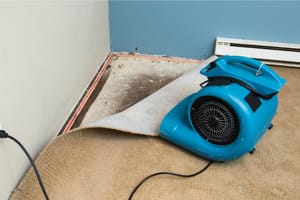Transforming your home's appearance hinges on selecting the right house painter.
A skilled and professional painter elevates your home’s visual appeal and ensures longevity and quality in the fresh coat of paint.
With countless painters vying for your attention, it's essential to know what to look for to secure the services of the best.
To aid in your search, we’ve compiled a list of valuable tips that will guide you toward finding the ideal painter who can bring your vision to life.
1)) Do Your Research
Start by researching local painters in your area. Look for reviews online, ask for recommendations from friends and family, and check out their portfolios to get an idea of their work.
Tips for Effective Research:
- Read Online Reviews: Start by reading reviews on websites such as Yelp, Google, or Angie's List. Pay close attention to both positive and negative feedback to get a balanced perspective.
- Seek Recommendations: Ask friends, family, and neighbors if they have any painter recommendations. First-hand experiences can provide reliable insights.
- Check Professional Portfolios: Visit the websites or social media pages of the painters you're considering. Look through their portfolios to assess the quality and style of their previous work.
- Verify Credentials: Ensure the painter holds the necessary licenses and insurance. This not only guarantees a level of professionalism but also protects you in case of accidents or damages.
- Interview Multiple Painters: Don't settle on the first painter you find. Interview a few candidates to compare quotes, communication styles, and approaches to your project.
Taking the time to thoroughly research potential house painters is crucial to ensuring you make an informed decision.
By leveraging online reviews, personal recommendations, and detailed portfolios, while also verifying credentials and interviewing several candidates, you'll be well-equipped to select a painter who meets your needs and expectations.
Thorough research lays the foundation for a successful painting project and a beautiful home transformation.
2)) Get Multiple Quotes
Don't settle for the first painter you come across. Instead, get quotes from at least three different painters so you can compare prices and services.
Tips for Getting Multiple Quotes:
- Compare Prices: Obtain quotes from at least three different painters. Compare the prices to ensure you're getting a fair deal without compromising on quality.
- Evaluate Services Offered: Look beyond the price. Check what services are included in each quote, such as surface preparation, priming, and clean-up.
- Ask for a Breakdown: Request a detailed breakdown of the quote to understand the costs for labor, materials, and any additional fees. This helps with transparency and budget planning.
- Inspect Warranties: Find out if the painters offer any warranties or guarantees on their work. This ensures you have a safety net in case of future issues.
- Assess Communication: Pay attention to how responsive and communicative the painters are during the quoting process. Good communication is essential for a smooth project.
Taking the time to gather multiple quotes ensures that you do not overpay and helps you identify the best value for the services provided.
By comparing prices, evaluating the range of services, requesting detailed breakdowns, inspecting warranties, and assessing communication, you can make a well-informed decision.
This thorough approach will help you find a painter who not only fits your budget but also meets your project requirements and quality standards.
3)) Check Their Credentials
Make sure the painters you're considering are licensed and insured. This will protect you in case of any accidents or damage during the painting process.
Tips for Checking Their Credentials:
- Verify Licensing: Ensure that the painter holds a valid license as required by state or local regulations. Licensing often signifies a certain level of professionalism and expertise.
- Confirm Insurance: Check that the painter has both liability insurance and workers' compensation. This protects you from being financially responsible for any damages or injuries that occur on your property.
- Ask for Certifications: Some painters may have additional certifications from professional organizations or paint manufacturers, indicating advanced skills and knowledge.
- Request References: Ask the painter for references from previous clients. Contacting these references can provide insights into the painter’s reliability and the quality of their work.
- Review Legal Compliance: Ensure the painter adheres to all local laws and regulations regarding safety and environmental considerations. Compliance with laws protects you and enhances the project's safety.
Verifying the credentials of potential painters is a vital step to safeguard your home and investment.
By confirming licensing, insurance, and additional certifications, and by requesting references and reviewing legal compliance, you ensure that the painter you hire is reputable and qualified.
This diligence minimizes risks and sets the stage for a smooth, successful painting project.
4)) Ask About Their Experience
Find out how long the painters have been in business and what type of projects they typically work on. Look for painters who have experience with projects similar to yours.
Tips for Asking About Their Experience:
- Ask About Years in Business: Inquire how long the painter has been operating. More years often indicate more experience and reliability.
- Request Project Examples: Ask for examples of previous projects similar to yours. This helps you gauge their expertise in handling jobs like yours.
- Check Specializations: Find out if the painter specializes in certain types of painting, such as residential, commercial, or exterior painting. Specialization can mean a higher level of skill in that area.
- Discuss Challenges: Ask the painter about any challenges they have faced in past projects and how they overcame them. This can give insight into their problem-solving skills and resilience.
- Inquire About Training: Find out if the painter and their team undergo continuous training or professional development. Ongoing training ensures they are up-to-date with the latest techniques and safety practices.
Gauging the experience of potential painters helps you determine their capability to handle your specific project.
By asking about their years in business, requesting similar project examples, checking their specializations, discussing past challenges, and inquiring about their training, you can assess their proficiency and suitability.
This careful evaluation ensures that you select an experienced professional who will deliver quality results for your painting project.
5)) Inquire About Their Process
Ask the painters about their painting process, including how they prepare surfaces, what type of paint they use, and how long the project will take.
Tips for Inquiring About Their Process:
- Understand Surface Preparation: Ask about their methods for preparing surfaces before painting. Proper preparation is crucial for a long-lasting finish and includes cleaning, sanding, and priming.
- Know the Paint Quality: Inquire about the types of paint they use and whether they use high-quality, professional-grade products. The quality of paint directly affects the durability and look of the finished job.
- Timeline for Completion: Get an estimate of how long the project will take from start to finish. Knowing the timeline helps you plan accordingly and manage expectations.
- Clean-Up Procedures: Ask about their clean-up process after completion. A thorough clean-up ensures that your space is left neat and free of any painting debris.
- Safety Measures: Learn about the safety measures they implement, including how they protect your property and ensure the safety of their crew. Proper safety protocols are vital to prevent accidents and damage.
Understanding the painter's process is essential to ensure a smooth and successful project.
By asking about their surface preparation methods, the quality of paint they use, project timeline, clean-up procedures, and safety measures, you can gain a comprehensive view of their professionalism and attention to detail.
This knowledge equips you to make an informed decision and ensures that the painting project meets your standards and expectations.
6)) Request References
Don't be afraid to ask for references from past clients. A reputable painter will be happy to provide you with references so you can hear about their work firsthand.
Tips for Requesting References:
- Ask for Recent Projects: Request references from recent projects to get a current sense of the painter's work quality and reliability.
- Contact Multiple References: Don’t rely on a single reference. Reach out to several past clients to get a well-rounded view of their experience with the painter.
- Inquire About Timeliness: Ask references if the painter completed their project on time. Timely completion is indicative of good project management skills.
- Check for Professionalism: Ask about the painter's professionalism, including their communication, punctuality, and respect for the client’s property.
- Seek Out Both Positive and Negative Feedback: Encourage references to share both positive and negative aspects of their experience to get a balanced understanding of the painter’s performance.
Requesting references is a crucial step in verifying a painter's reliability and quality of work.
By asking for recent project references, contacting multiple past clients, inquiring about timeliness, checking for professionalism, and seeking out both positive and negative feedback, you can gather comprehensive insights into the painter's performance.
This thorough vetting process helps ensure that you hire a painter who is trustworthy and capable of delivering satisfactory results.
7)) Consider Their Communication Style
Communication is key when working with a painter. Make sure the painters you choose are responsive, clear in their communication, and easy to reach throughout the project.
Tips for Considering Their Communication Style:
- Evaluate Responsiveness: Assess how quickly they respond to your initial inquiry. A prompt response indicates that they are attentive and value your time.
- Clarity in Communication: Ensure they provide clear and concise information, making it easy for you to understand the project details and expectations.
- Accessibility: Determine how accessible they are throughout the project. Reliable contact via phone, email, or in person is crucial for smooth communication.
- Frequency of Updates: Ask how often they will provide updates on the project's progress. Regular updates help keep you informed and involved.
- Professionalism and Courtesy: Observe their level of professionalism and courtesy in interactions. Respectful and polite communication fosters a positive working relationship.
Considering a painter's communication style is vital for a smooth and coordinated project experience.
Evaluating their responsiveness, clarity, accessibility, frequency of updates, and professionalism ensures that you stay well-informed and your expectations are met.
Effective communication fosters a collaborative relationship, contributing to the project's success and your overall satisfaction.
8)) Look for Quality Guarantees
A good painter will offer some sort of quality guarantee on their work. Make sure you understand what this guarantee covers before hiring them.
Tips for Looking for Quality Guarantees:
- Understand the Scope of the Guarantee: Clarify what aspects of the work the guarantee covers, such as paint adhesion, color fading, or workmanship issues.
- Duration of the Guarantee: Inquire about the length of time the guarantee is valid. Longer guarantees often indicate greater confidence in the quality of work.
- Process for Claims: Ask about the procedure for making a claim if issues arise. Knowing how to address problems can provide peace of mind.
- Exclusions and Conditions: Identify any exclusions or specific conditions that might void the guarantee. Understanding limitations can prevent misunderstandings later.
- Documentation: Request written documentation of the guarantee for your records. This ensures that the terms are clear and can be referred to if needed.
Understanding and assessing quality guarantees is essential when hiring a painter.
By clarifying the scope, duration, claim process, and exclusions, and obtaining written documentation, you ensure that you're covered if any issues arise.
This attention to detail reassures you of the painter’s commitment to quality and provides a safeguard for your investment.
9)) Get Everything In Writing
Before starting the project, make sure to get a detailed contract outlining all aspects of the job including cost, timeline, materials used, and any other important details.
Tips for Getting Everything In Writing:
- Detail the Scope of Work: Ensure the contract specifies the exact tasks to be completed, including preparation, painting, and cleanup activities.
- Itemize Costs: Break down the cost of labor, materials, and any other charges. This helps avoid unexpected expenses and clarifies the total project budget.
- Set Timelines: Include a clear timeline for project milestones and completion dates, ensuring there is an understanding of the project schedule.
- Specify Materials: List the exact materials and brands that will be used. This ensures no substitutions are made without your approval.
- Include Warranty and Guarantee Details: Document any agreements related to warranties or guarantees to confirm what is covered and for how long.
Getting everything in writing is a critical step to ensure clarity and prevent misunderstandings.
By detailing the scope of work, itemizing costs, setting timelines, specifying materials, and including warranty and guarantee details in a contract, you protect yourself and create a clear agreement.
This thorough documentation helps ensure a smooth project execution and reinforces the professionalism of the painter you hire.
10)) Trust Your Instincts
Trust your instincts when choosing a house painter. If something doesn't feel right or if you don't feel comfortable with a particular painter, it's better to move on and find someone else.
Tips for Trusting Your Instincts:
- Listen to Your Gut Feelings: If something feels off or you have reservations about a painter, pay attention to those feelings. They can be a signal that something isn’t right.
- Assess Comfort Level: Consider how comfortable you feel during interactions with the painter. Mutual respect and ease are important for a good working relationship.
- Look for Red Flags: Be aware of any warning signs, such as reluctance to provide references, vague answers, or pushy behavior. These can indicate potential issues.
- Evaluate Their Enthusiasm: Notice how enthusiastic and engaged the painter seems about your project. Passion and interest often translate into better quality work.
- Seek a Second Opinion: If uncertain, discuss your concerns with a trusted friend or family member to get an outside perspective and reassurance.
Trusting your instincts is a valuable part of selecting a house painter that aligns with your expectations.
By listening to your gut feelings, assessing your comfort level, watching for red flags, evaluating the painter's enthusiasm, and seeking second opinions when necessary, you ensure a choice that feels right.
This approach not only fosters peace of mind but also sets the stage for a successful and enjoyable painting project. Your instincts are a powerful tool in navigating the selection process.
Conclusion
Discovering the perfect house painter requires diligence and careful consideration, but the payoff is immense when you witness the exceptional transformation of your home.
By adhering to these ten tips, you can confidently navigate the selection process, ensuring you hire a painter who not only meets your expectations but exceeds them.
From conducting thorough research to verifying credentials and ensuring clear communication, every step is vital in securing a professional who will bring your vision to life with quality and precision.
Invest the time to find the best painter, and you'll be rewarded with a stunning, enduring finish that enhances your home's beauty and value.
Related Articles and Guides
- How To Choose A House Painter
- How To Negotiate The Best Price For Having A House Painted
- 10 Tips To Help You Determine Whether To Fire And Replace A House Painter
Download Our Free E-book!








